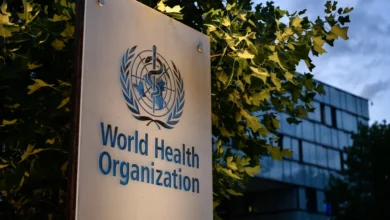
Prime Minister Mostafa Madbouly assured Saturday that Egypt’s currency crisis is “transient” and will come to an end soon.
In an interview during a press conference that took place on his inspection tour for several factories in the Tenth of Ramadan City, he said: “The most important thing is what comes after that and the lesson we have learned from the global and economic crisis is that we, as a country, must possess our production capabilities and products to the greatest extent possible.”
The Prime Minister further touched on the topic of industry in Egypt, assuring that it tops the government’s work priorities, alongside working to encourage the private sector to play its role in leading the Egyptian economy in various development activities, particularly the industrial sector.
“We support all national and foreign industrialists, every factory that produces locally and reduces the import bill,” he said.
Another devaluation
Investors are stepping up their bets that Egypt will allow its currency to fall sharply following the elections scheduled for December.
The financial derivatives market for Egyptian assets, used to hedge risks and speculation, is returning to life again as traders prepare for the fourth devaluation of the currency since March 2022.
Analysts at Deutsche Bank and Morgan Stanley expect the flotation in the next quarter, while Société Générale analysts expect it after the brief vote counting period in December.
Egypt devalued its local currency three times since March 2022, losing more than 50 percent of its value against the dollar.
It also imposed restrictions on imports, while local banks suspended the use of direct debit cards issued in pounds outside the country in an attempt to stop the bleeding of foreign currencies.
Repercussions of the Gaza crisis
The International Monetary Fund is studying a possible increase in the loan program for Egypt, amounting to US$3 billion, as a result of the economic difficulties resulting from the war between Israel and Hamas.
The IMF’s director, Kristalina Georgieva, said in an interview with Reuters on the sidelines of the Asia-Pacific Economic Cooperation Summit that the conflict is destroying the population and economy of Gaza and has taken its toll on the economy of the West Bank.
This poses difficulties for neighboring countries Egypt, Lebanon and Jordan through losses in tourism revenues and high energy costs, she added.
A few days ago, a poll was conducted by Bloomberg from those familiar with the matter stated that the current visit of European Commission President Ursula von der Leyen to Cairo comes aiming to advance efforts to support economic development in Egypt and mitigate the impact of the current crisis.
According to Bloomberg, the European Union is scheduled to propose an investment plan aimed at pumping nine billion euros (US$9.8 billion) into sectors such as digital initiatives, energy, agriculture and transportation, including an investment forum scheduled to be held next spring.
The power of bonds
Meanwhile, the Egyptian government issued “Samurai” bonds in the Japanese market, worth US$500 million for a period of five years, with an annual return of 1.5 percent, according to a statement by the Egyptian Ministry of Finance at the beginning of November.
Panama’s Ministry of Finance also sold “Panda” bonds in the Chinese market last month, equivalent to US$500 million for a period of three years at an interest rate of 3.5 percent, according to a previous statement by the Ministry of Finance.
The UAE’s Global Investments acquisition deal was announced previously for 669 million shares of the Eastern Company’s shares, at a total of $530.2 million.
Falling inflation
Earlier in November, the Ministry of Finance succeeded in arranging new development financing worth $500 million to implement health and educational projects, in a new partnership with Deutsche Bank, ABC Bank, and the Arab Investment and Export Credit Guarantee Corporation (Daman).
The Central Bank resorted to returning to adopting a flexible exchange rate system after departing from it during the years of the Coronavirus crisis – 2020 and 2021 – in order to restore the confidence of the International Monetary Fund, and obtain a loan from it to finance Egypt’s economic reform program.
The Central Agency for Public Mobilization and Statistics announced earlier that the inflation rate within cities slowed to 35.8 percent in October 2023 compared to 38 percent last September, while the overall annual inflation rate in Egypt declined during the month of October to 38.5 percent compared to 40.3 percent in September.
The annual core inflation rate prepared by the Central Bank, fell to 38.1 percent in October compared to 39.7 percent September 2023, for the fourth time in a row.
Within about 20 months, the Central Bank raised the interest rate by 11 percent on six occasions – the last of which was one percent in August – reaching 19.25 percent for deposits and 20.25 percent for lending, with the aim of reducing the inflation rate.
Experts weigh in
The Chairman of the Plan and Budget Committee in the House of Representatives Fakhri al-Fiqi, confirmed the possibility of achieving this increase for Egypt’s program from loans granted by the fund as a result of the repercussions of the Gaza war on Egypt and its economy.
He added that this is evident especially with the impact of tourism in Sinai, in addition to the rise in global oil prices and its repercussions, the decrease in imported Israeli gas to Egypt as a result of what the Tamar field is exposed to, and increased risk in the region reducing Egypt’s ability to attract more investments.
Al-Fiqi explained that the loan program can be increased through two methods, namely extended financing, or providing exceptional financing through resilience and sustainability financing, which the fund allowed the member states that need it to agree to apply for it.
He stressed that Egypt eligible for this, especially since it has a good program and record with the fund, and has never defaulted on its obligations to it before.
The former head of the Financial Supervision Authority, Sherif Samy, said that the past few weeks have shed light on Egypt’s regional role, and brought back a reminder of its weight and the importance of relationship network that it has woven over decades with various parties.
Thus, it is expected to see a positive aspect represented by greater flexibility and a faster response from international institutions to meet financing requirements and support the country’s economic initiatives, he added.
Banking expert Mohamed Abdel-Al said that the government is currently studying solutions outside the fund to increase foreign exchange as Egypt suffers from a gap there.
The average annual gap ranges from $13-15 billion during the three-month period, he noted.
In the coming years, the gap in foreign exchange will reach $55 billion, which has directed the state at the present time to seek to provide foreign exchange in several different ways, he added.
Abdel-Aal explained that Egypt is currently trying to preserve foreign exchange to increase its growth in an effort to pay its obligations in dollars, as the foreign reserve reached $35 billion after paying all annual obligations.




